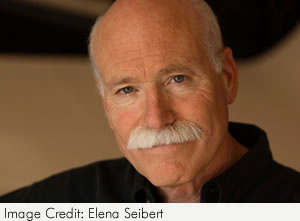Tobias Wolff
 Tobias Wolff is the author of the novels The Barracks Thief and Old School, the memoirs This Boy's Life and In Pharaoh's Army, and the short story collections In the Garden of the North American Martyrs, Back in the World, The Night in Question, and Our Story Begins. Other honors include the PEN/Malamud Award and the Rea Award (both for excellence in the short story), the Los Angeles Times Book Prize, and the PEN/Faulkner Award. He has also been the editor of Best American Short Stories, The Vintage Book of Contemporary American Short Stories, and A Doctor's Visit: The Short Stories of Anton Chekhov. His work has regularly appeared in The New Yorker, The Atlantic, Harper's, and other magazines and literary journals.
Tobias Wolff is the author of the novels The Barracks Thief and Old School, the memoirs This Boy's Life and In Pharaoh's Army, and the short story collections In the Garden of the North American Martyrs, Back in the World, The Night in Question, and Our Story Begins. Other honors include the PEN/Malamud Award and the Rea Award (both for excellence in the short story), the Los Angeles Times Book Prize, and the PEN/Faulkner Award. He has also been the editor of Best American Short Stories, The Vintage Book of Contemporary American Short Stories, and A Doctor's Visit: The Short Stories of Anton Chekhov. His work has regularly appeared in The New Yorker, The Atlantic, Harper's, and other magazines and literary journals.
|
Tobias Wolff, from an interview by Travis Holland * |
 |
|
Influence changes its character over time. To begin with, there are those books you encounter when you’re young that make you a reader. None of us become writers without first becoming readers. For me it was the Hardy Boys, that sort of thing. Jack London. And, most of all, a now obscure writer named Albert Payson Terhune, who wrote books only about collie dogs. There are maybe three phases of influence. The one I mentioned already. And then there’s the influence of meeting a style that becomes a way of looking at things, and that you emulate. With a lot of my contemporaries it was Kerouac. E.E. Cummings was very influential. For me it was Hemingway. Not such a bad thing. You have to start somewhere, as an imitator—it’s how we learn everything. And he’s not a bad guy to imitate because, first of all, you find out in short order that you can’t really do what he does. The plainness is totally deceptive, and is the result of lapidary work, and a way of looking at things that is completely beyond you when you begin. But it teaches you something, trying to do it. And then as I grew older it was Katherine Anne Porter and Katherine Mansfield. Chekhov. And, of course, Mansfield learned a lot from Chekhov. I love Porter’s work, still. There is a purity, an emotional texture to her work that nevertheless is not sentimental, and that does not exclude feeling. Sometimes, in some writers, you would almost think it wasn’t respectable to feel—there is such a level of detachment and coolness in the gaze of the writer that the effect can be a little chilly. I admired Chekhov’s objectivity, which was nevertheless infused with emotion. So that’s influential, in terms of when we begin to emulate. And then, finally, as you come into your own, whatever that is, and begin to discover your own gifts—you start to hear the sound of your own voice a little better—you are swayed by a kind of influence that sets the standard by which you want your own work to be read. So when I would read a great story of Ray Carver’s, like “Errand” or “Cathedral,” my thought would be, “I want to write this well.” Not write like him, because I knew I couldn’t. That was his world, his voice, all that. But I want to write a story this good. I want to write a story that affects others the way this story just affected me. That is an enduring kind of influence. And that is a generous kind of influence, because it extends in every direction. I have it when I read poetry, I have it when I see a good play, when I hear music. I want to be able to make someone else feel what I just felt. That’s the kind of influence, finally, that stays with you. Because I’m not going to be Faulkner—I can read Faulkner now, and I’m totally immune to imitation. I love him, but I’m totally immune to any stylistic influence from him. I wouldn’t dream of it. I can read Cormac McCarthy, who’s obviously learned a lot from Faulkner. And as much as I love his work, I wouldn’t dream of trying to write like him. But I think, “That’s just great. I really want to do something this good.” And so he’s influential to me in that way. After a while you are who you are. You don’t try. It just happens to you. * Travis Holland is the author of The Archivist's Story |
|
